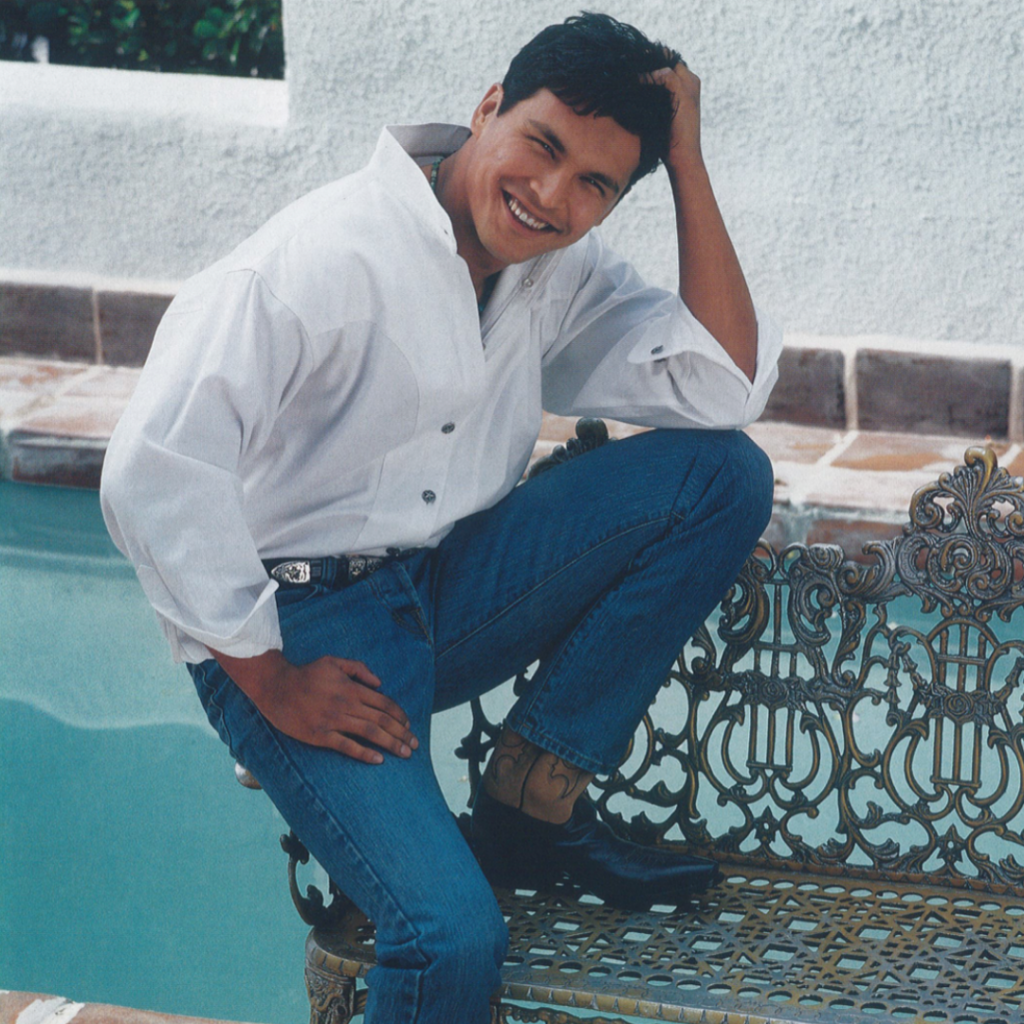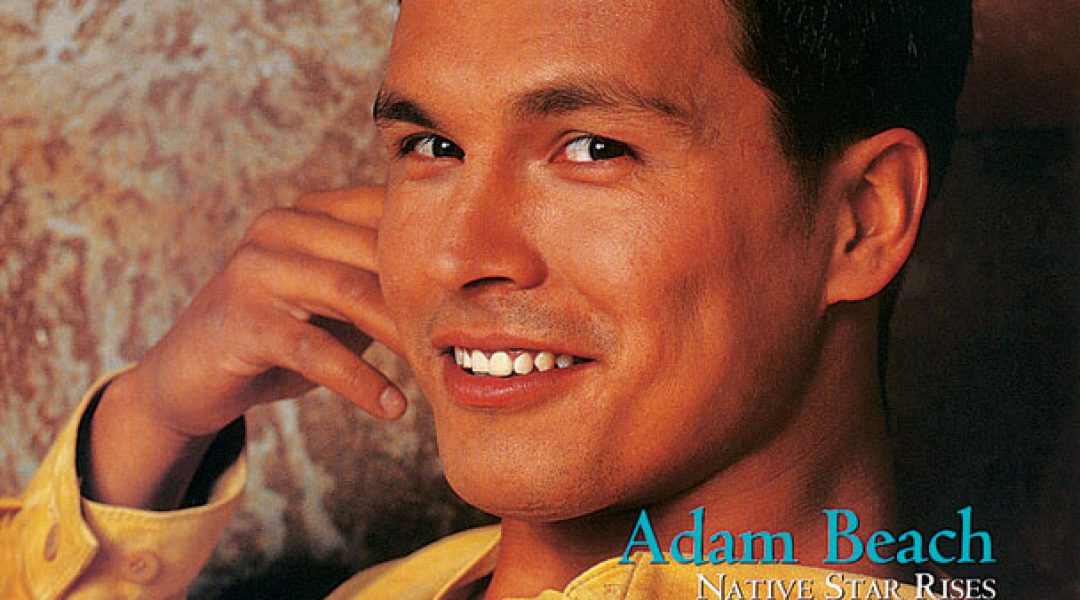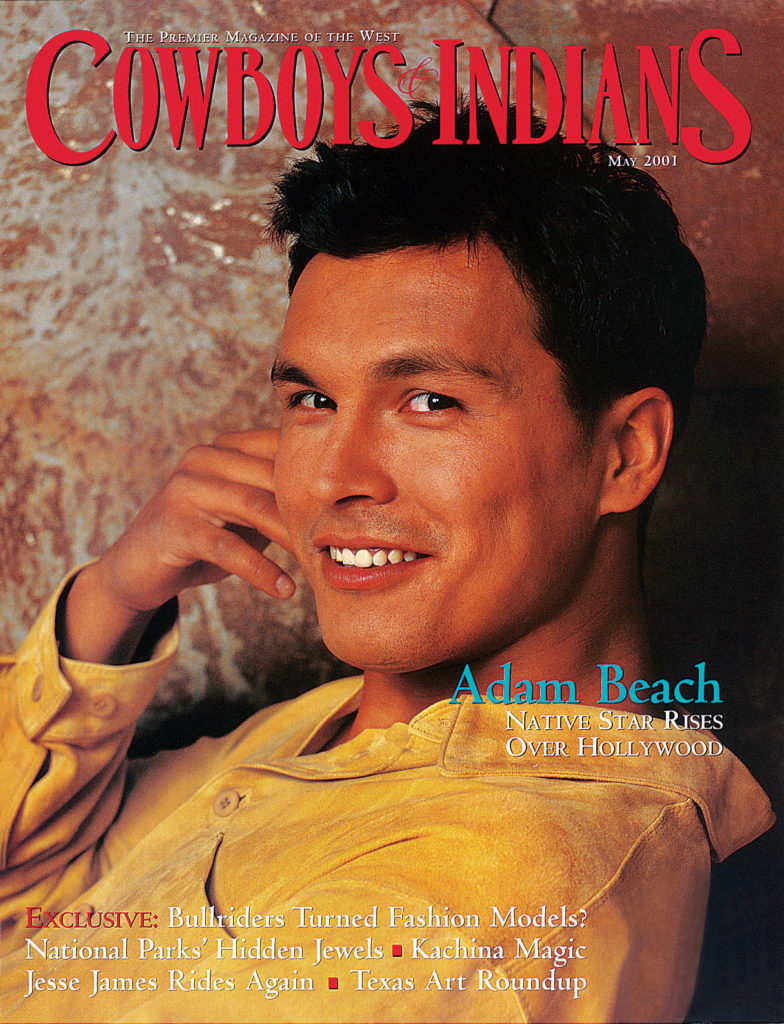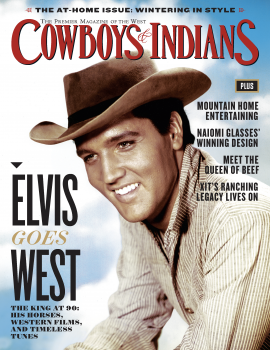No longer just an up and comer, this Native talent gets drafted to the big leagues as a buck private in MGM’s Windtalkers.
Adam Beach emerges from an Army tent on the set of the World War II action flick Winndtalkers dressed in rumpled fatigues and a parka that hides most of his face. He's been holed up inside watching the last take with his Oscar-winning costar Nicolas Cage. The two are deep in a remote California canyon where director John Woo has dragged Windtalkers' cast and crew to recreate the Battle of Saipan, a pivotal moment in America's island-hopping war in the Pacific.
Snow clings to the surrounding hills, and five inches of mud have helped turn the set into a battle zone. Freezing rain sizzles as it bombards klieg lights suspended from 80-foot cranes. It's the worst possible weather to make a movie, but the smile on Beach's face tells a much different story. To the Canadian native, 28, this movie is truly a turning point-for his own acting career as well as for the Native community.
Windtalkers is an ambitious production about two Marines, Cage, and Christian Slater, assigned to protect the lives of two Navajo Code Talkers played by Beach and newcomer Roger Willie. Code Talkers were Native American soldiers who employed a derivation of their tribal language to encrypt messages in the Pacific Theater. The results were completely undecipherable by the Japanese.
The heroic efforts of these Native Americans have been lauded by everyone from their fellow soldiers to the president of the United States, but in typical Hollywood fashion no one saw fit to tell their story until a heavy hitter Like Woo, whose credits include Face/Off and Mission Impossible II, got behind the project. ''I'm so glad to have learned so much from the Navajo culture and what they have done for the country;' Woo says, before turning his thoughts to the movie itself.
"The biggest discovery of this film is Adam Beach," Woo says. "The camera loves him, and he's got a charisma and charm that comes across on the screen and that's what makes a movie star."
Faced with the inevitable question that only a Native could play the part of Pvt. Ben Yahzee, Woo speaks candidly: "The Code Talkers are the background of the film; the real story is about friendship, and it was really important for all the actors to work together as a team. Adam brought that to the film; he's totally unselfish. He has that kind of spirit.''
Beach concurs. "Windtalkers' main focus isn't the Navajo Code Talkers; it's really more about the story of a Marine unit, seven guys who have to become one entity. These guys are all from different places in life, and they get into a situation of having to rely on one another. You see a bond that develops between them that doesn't exist anywhere else. That's what I like about this movie — it's about a Swede, a Greek, Americans, and Navajos. It's about pulling together to achieve a common goal and through this journey you learn how the Navajo Code Talkers played a pivotal role in achieving that goal."
After five months in production, Beach seems completely unfazed about his star billing or by Woo and Windtalkers' other unit members, including Mark Ruffalo, Noah Emmerich, and Peter Stormare; yet, it was only IO years ago that the self-described "laid-back Indian kid" took his first foray into acting.
Born in the small Manitoba town of Ashern, Beach spent his early years chasing minnows in local rivers during spring runoff and playing outside until either it got too d ark or he got too hungry. But this idyllic childhood was shattered soon after his eighth birthday, when his mother was killed by a drunk driver; two months later, his father drowned.
Sent to live with relatives Winnipeg, Beach was haunted by feelings of abandonment, and he struggled to make sense of his parents' deaths. It was during this time, searching for a Beach starred as Victor Joseph in Smoke Signals, the first full-length feature film written, directed, and co-produced by Native Americans. sense of belonging, that serendipity exposed him to theater. Through acting, Beach vicariously lived out the family-life experiences that eluded him in the latter part of his youth.
When the young actor was offered a role in a two-month theater run, Beach grabbed the opportunity even though it meant dropping out of high school. The gamble paid off. Soon after, he moved to Ottawa and landed recurring roles in the hit Canadian television series North of 60 and Lonesome Dove. Beach also began working on a new family by marrying Meredith Porter. The couple now has two sons. 
But it was in the feature Dance Me Outside, playing the role of Frank Fencepost, where Beach seems to have hooked onto something substantial as an actor. Fencepost was a quirky fellow who endeared himself to audiences with his laissez-faire attitude about life and his conspiracy theory about how women think.
"In that character I found a part of me that I got to just expand upon and take to an extreme. I always like to go to a party and be the happy guy, the one that hollers, 'Let's have a good time!' Growing up, I heard my dad was like that- the life of the party. That's what I carried with me in playing Frank-and I liked it so much that after the fi lm was over I said, 'I'm not letting go of this guy.' I found a part of me I enjoyed, and that other people enjoyed."
If Dance Me Outside gave Beach a much needed personal outlet, then Smoke Signals offered him a major step up professionally. The film won a Filmmakers Trophy at the Sundance Film Festival in 1998 and also took home the audience award for dramatic feature. The indie flick was a profound turning point in his career and, more poignantly, the experience resonated in his personal life.
"It was the first time I ever released the emotion of losing my father, how I felt about him, all the anger I had. But also the love that was there. Everything was mixed up. T he last scene in the movie, when I'm standing on the bridge, that was so hard for me. I did it in two takes. Chris Eyre, the director, wanted me to do it a couple more times, but I couldn't. I told him, That's it; and walked away.''
In Windtalkers the young Saulteaux has hit pay dirt, landing a role that will catapult him into Hollywood's inner circle. With a fall release date, Beach is sure that the film is his best work yet, and by far his most demanding role. He readily admits that Windtalkers was technically daunting, in particular, the need to learn to speak the extremely complex Navajo language. The work was also unnerving on an emotional level.
"There's a lot of death. Seeing the bombs and guns going off. people freaking out; screaming, and blood everywhere. Because of the level of talent involved in this film, everything looks so real and my reactions have to be real to all of that chaos. I'm letting audiences see through my eyes the horror of war," he says pensively. "My character starts off very innocent, and by the end becomes a little crazy. It's been hard to make the transition, to build that arc for the character and then resolve it."
With Windtalkers having such a pronounced Native story line, Beach is mindful that Indian Country is watching both the film's depiction of Native culture as well as his own performance. Having seen a few dailies, he admits that he feels comfortable that his community will be proud on both counts.
"I hope that with my involvement in Windtalkers our people will feel that Hollywood is starting to take those little baby steps in showing our accomplishments and our struggles, and realizing that we can participate in this industry. There are roles that can be rewritten to bring in our Indian-ness because I will always represent myself as who I am, and that's Indian."
Fortunately for moviegoers, John Woo espouses the same attitude: "Adam is going to have a big career in Hollywood because he's the bridge between the contemporary and traditional. He's using modern ways to translate his native culture."
But when it comes to Native politics, Beach tends to shy away from the overt political arena and chooses instead to affect the subculture that is at greatest risk: youth. ''I'm not saying that we have to forgive and forget what happened 100 years ago or 20 years ago, but we have to build a structure, a lifestyle that will benefit the younger generation, a base that will make them stronger," he says. "It's about being good parents, caring for your children, reflecting yourself in a way that your kids will want to emulate. It's about telling your children that you love them, and you're here to support them and take care of them. That's the message."
From the May 2001 issue.













